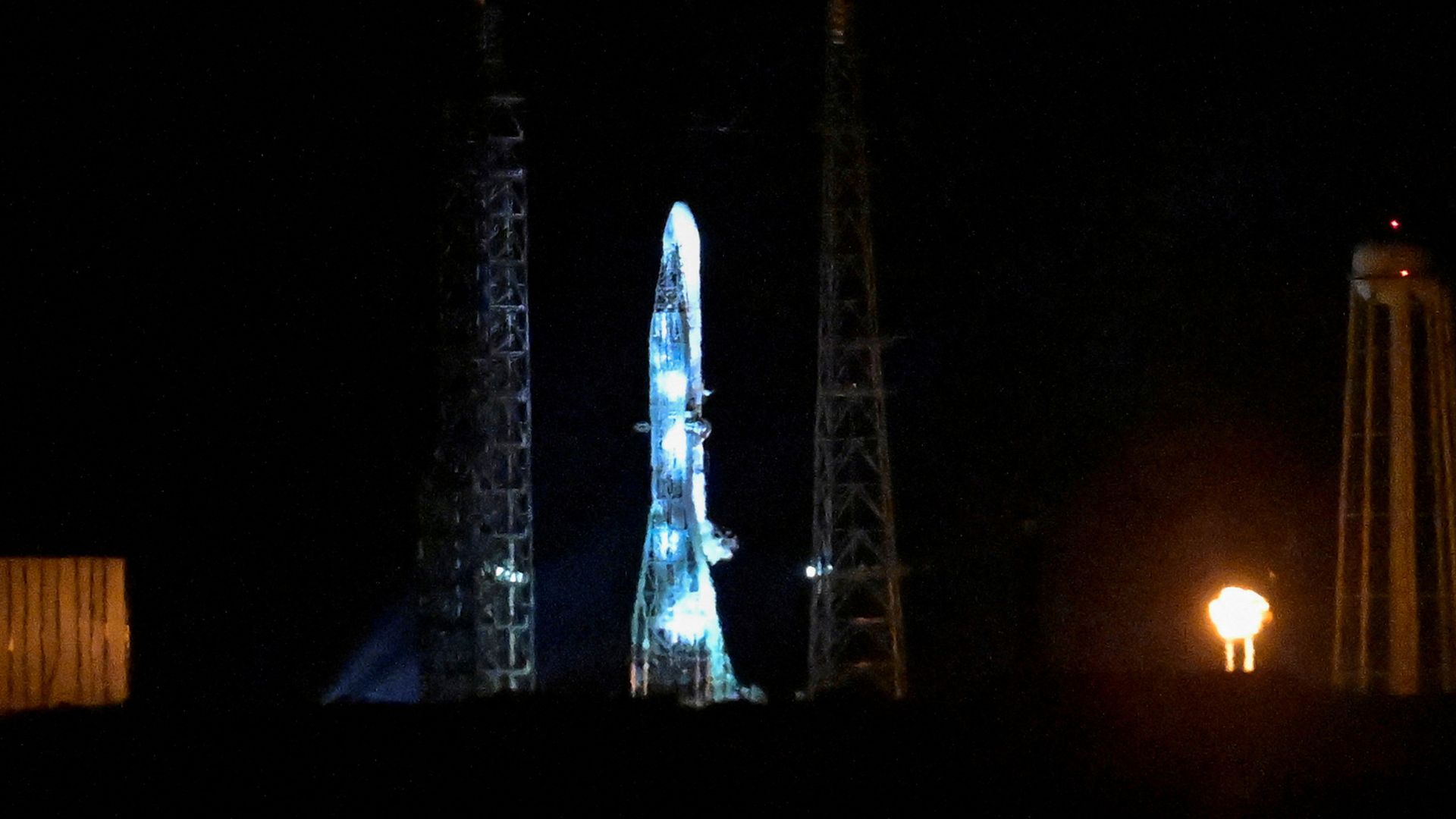The launch of a huge, partially reusable rocket, built by Jeff Bezos’s company, has been called off this morning after hours of delays.
The 98-metre rocket, called New Glenn, is around as tall as Big Ben. It was set to carry up to 45 tonnes of tech to low Earth orbit.
However, the team at Blue Origin, Amazon founder Mr Bezos’s space technology company, confirmed this morning that the launch was called off.
The decision came following a series of delays due to unspecified issues.
As it happened: See our coverage from the launch
The team said they would work out a new date for lift-off, adding: “We can’t wait to get right back here for our next launch attempt.”
The team said earlier this morning that they were “working through anomalies”.
Speaking in an interview before the launch, Mr Bezos said “the thing we’re most nervous about is the booster landing”.
“Clearly on a first flight you could have an anomaly at any mission phase, so anything could happen,” he said.
New Glenn’s builders hope it will challenge SpaceX’s Falcon 9 rocket, which has become the go-to workhorse to get heavy cargo into space.
However, it has taken Blue Origin years to get to this point.
They started developing the orbital rocket almost a decade ago, but setbacks and delays pushed back its maiden voyage.
Ahead of the launch, SpaceX founder and X owner Elon Musk, shared his support, writing “good luck” in a response to a post by Blue Origin on his platform.
Reusable first stage
The rocket – named New Glenn in honour of NASA astronaut John Glenn, has two stages, one of which is reusable.
The first, reusable stage will use seven engines to blast the rocket off the launch pad into higher, thinner air and then drop back to Earth to land on a sea platform called Jacklyn.
That first stage is built to fly at least 25 times, making it more cost-effective and sustainable than building new rockets for every flight.
The second, disposable stage is where cargo and items needed for missions will be stored.
Read more:
Is Jeff Bezos chasing down Elon Musk in space race?
Stranded astronauts ‘don’t feel like castaways’
Follow our channel and never miss an update
The two restartable engines on board will kick in once the first stage has used up all its fuel.
They’ll take the rest of the spacecraft out to orbit.
Science and technology editor
The New Glenn rocket is one to watch in the world of space.
Partially reusable and capable of lifting heavy payloads into Earth orbit or even the Moon or Mars, it promises to be a serious rival to Elon Musk’s SpaceX Falcon 9.
With his first big rocket only scheduled for launch now, you’d be forgiven for thinking Amazon boss Jeff Bezos was a latecomer to the billionaire boys club sending shiny machines into space.
In fact, Bezos founded his space venture Blue Origin 25 years ago, before Elon Musk created SpaceX and Richard Branson launched Virgin Galactic.
His rocket business kept a low profile until 2015 when it launched its sub-orbital space tourism vehicle New Shepherd 100km above the Earth.
While New Shephard can be dismissed as a billionaire’s plaything for millionaire passengers, New Glenn could be a game changer.
It’s a key tool to deliver Bezos’s Project Kuiper satellite broadband network – a direct challenge to Musk’s Starlink system.
Blue Origin is also working on a lunar lander and, its thought, crew capsules so it can offer its services ferrying astronauts to the International Space Station or be part of NASA’s plans to return humans to the Moon.
New Glenn is set to carry Blue Ring, an experimental “space tug” and satellite support platform, but for Jeff Bezos, there’s a lot more riding on this rocket than that.
Cargo
Rockets like this are designed to take things into orbit or out to space, so they need to be able to carry cargo.
When Mr Musk launched SpaceX’s first Falcon Heavy rocket in 2018, he popped his old red Tesla Roadster on board.
Mr Bezos hasn’t done anything as showy as that. Instead, he loaded a prototype cargo carrier onto New Glenn, called the Blue Ring Pathfinder.
In the future, the Pathfinder will be able to carry 3,000kg of scientific gear into space and deliver it to different locations in orbit.
Be the first to get Breaking News
Install the Sky News app for free
During this test flight, the team back on the ground will make sure they can establish communications with the Pathfinder once it is in orbit.






